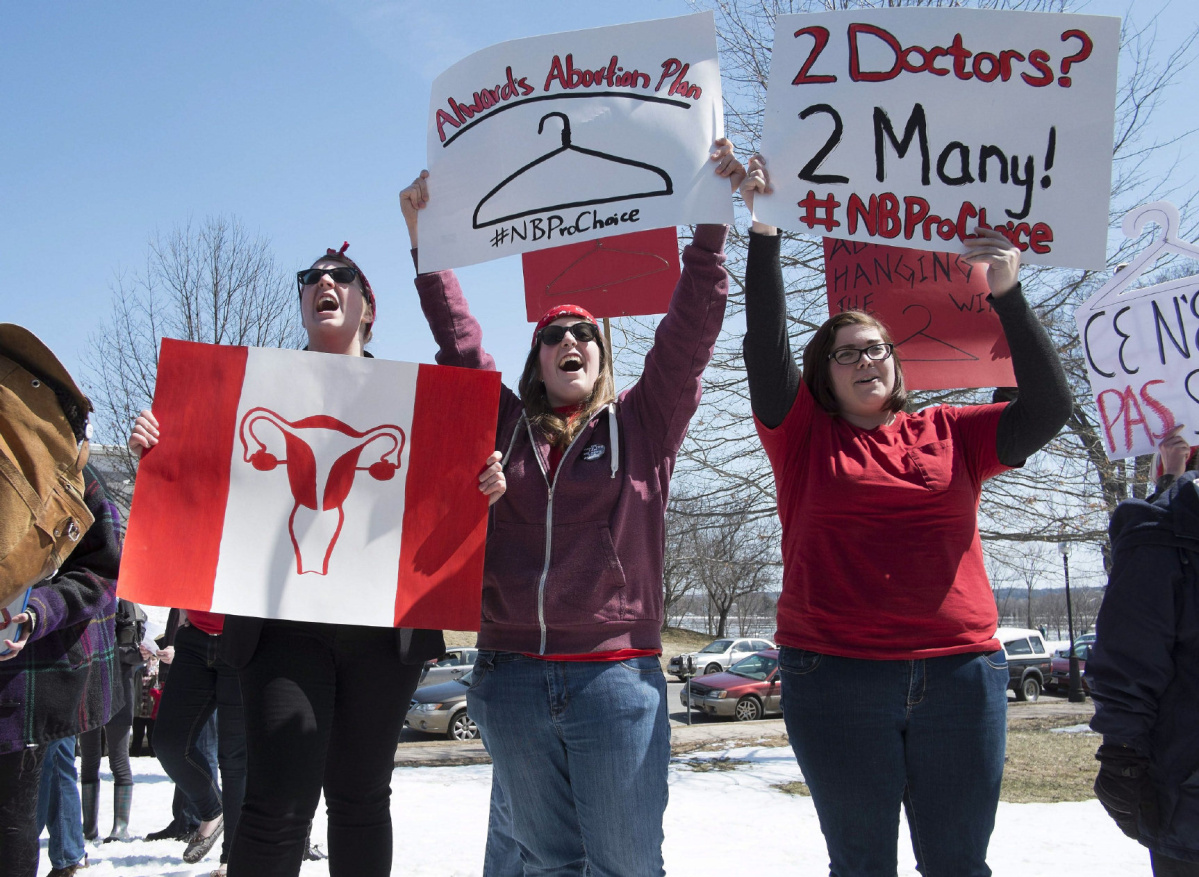 Reproductive Justice New Brunswick is pushing for abortion to be taken as a serious election issue this campaign season. Since the group’s formation in April it has been a part of their mandate.
Reproductive Justice New Brunswick is pushing for abortion to be taken as a serious election issue this campaign season. Since the group’s formation in April it has been a part of their mandate.
Kathleen Pye, chair of the pro-choice group, said while the July 31 closure of the private Morgentaler Clinic in Fredericton came as a blow to women’s reproductive health in the province, it also happened at the right time.
“This gives us the opportunity to demand change and to say that it’s not okay that the government in New Brunswick decides to make whatever rules they want,” said Pye. “It’s really created the conversation.”
The group formed in response to the announcement that the city’s private abortion clinic, the Morgentaler Clinic, would be closing due to lack of government funding.
Pye said abortion rights were taken for granted by most in the province, so closing the only private clinic in the province was shocking to some. She said voters really do care about abortion, but public discourse surrounding the topic has been skewed. She sees no reason why abortion shouldn’t bring people out to the polls the same way jobs or fracking would.
“The fact that political parties have had to actually talk about abortion in New Brunswick baffles my mind,” said Pye. “Whenever I see articles about the election nationally, abortion is in there. People know and I don’t think there’s any way of ignoring that.
“When people think about the election, they think about this issue.”
Tom Bateman, political science professor at St. Thomas University, isn’t so sure. He said there are certainly voters who are passionate about abortion from both sides of the debate, but he doesn’t think those groups make up a significant enough portion of the voting demographic to really sway the election results.
“How many votes the issue will move from party to party is hard to say. My guess is not much,” said Bateman.
Bateman attests this to the fact that for people following this issue, their vote is almost predetermined; pro-choicers know they won’t be voting Conservative and pro-lifers won’t be supporting Liberals or NDP. He also doesn’t think non-political types will be running to the polls because the Morgentaler Clinic doesn’t receive government funding.
Bateman said the general population of New Brunswick doesn’t like talking about abortion at all and this reluctance extends to the political parties themselves.
“The political culture is a little bit more conservative,” said Bateman. “We might just be willing to walk past some of the more difficult and unsettling issues.”
Hannah Gray, a fourth-year St. Thomas student, said students around here are tuned into the abortion debate just as much if not more than the general population.
She said this election is one that is going to matter to students for a variety of issues – jobs and fracking move younger generations too – but she thinks abortion might inspire political action in students who may not have voted otherwise.
“I think that (students) realize now what decisions are being made by the legislature,” said Gray. “It’s engaging students because it’s so obvious what the consequences are. I think it’s absolutely getting students to vote.”
The pro-choice movement is an old one.There are plenty of activists in New Brunswick who having been fighting for the right to access safe abortions for decades.
Gray said the student population can bring valuable energy to the movement in fundamental ways, like bringing fresh faces to protests.
Gray said young people aren’t the future but the present, which means they’re the ones the government should be listening to.
“The first rally was organized by a 16 year old,” said Gray. “We need young people coming in, and they are.”

